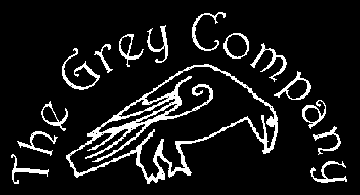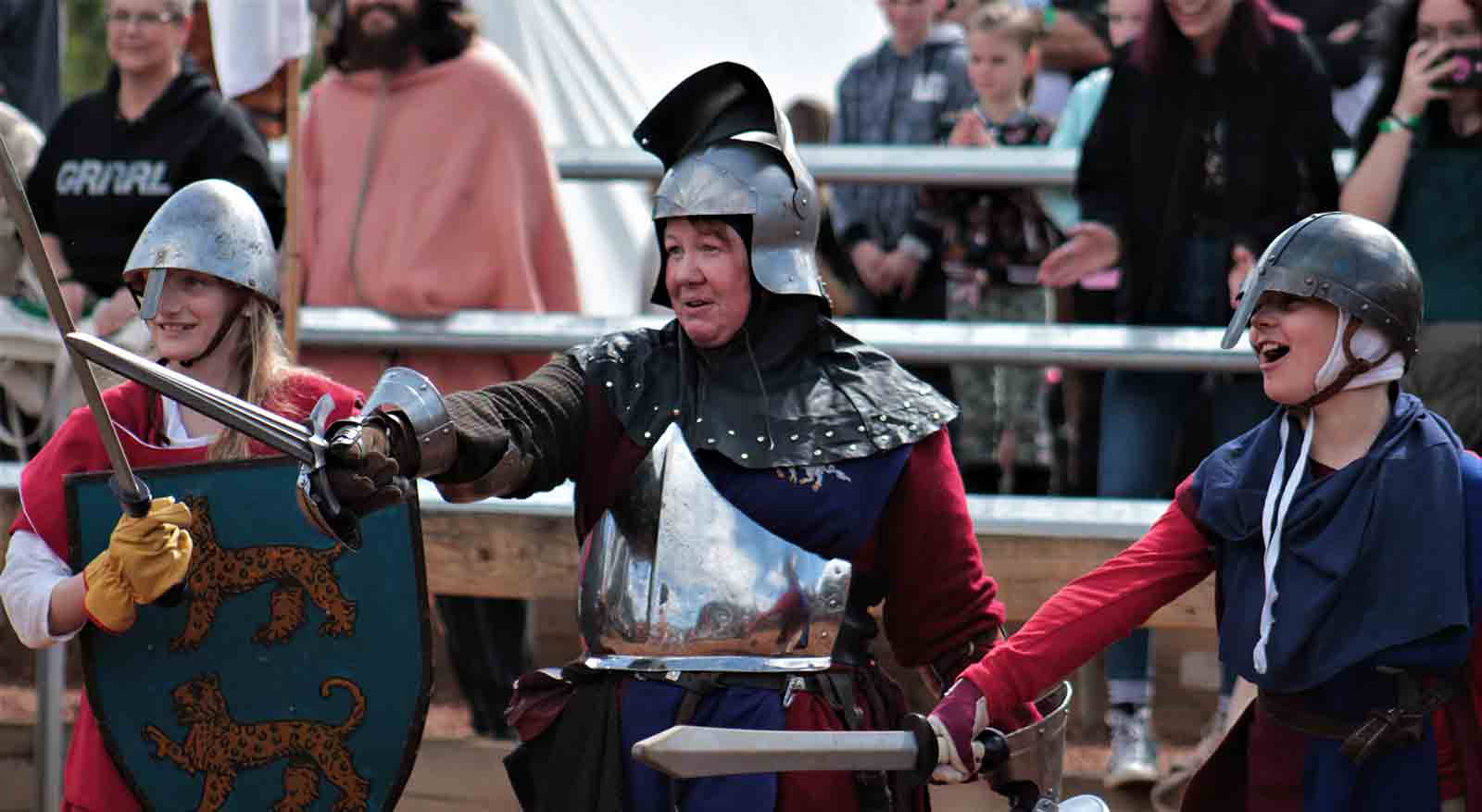WARNING. This article contains coarse language.
FAMA
To understand insults, you need to understand what is the fama and how important it is in the medieval society.
Fama is still a bit of a blurry concept for historians, going between the rumor, the honour, the reputation and the renown. Fama is the judgemental vision that the community has on each of its members, may it be based on facts or not. Think about the words famous or infame, they come from the word Fama.
First, there is a consensus of what a good person should be. Everyone falling within this line of conduct should have fama; a good reputation. On the opposite, someone with a bad reputation would have infamia.
In a society where very few people read, most of the life is happening on the out-spoken. The public places are theatres where identities are built, and words are tools to build or destroy the fama. False accusations and insults have the power of destroying someone’s fama, if they are publicly spoken and believed. People’s identity is built on their reputation and renown. The rumor is the vector through which fama is confirmed. In court, witnesses will be called to give their opinions on the defendant (accused), and if the public opinion is bad, the defendant will be described as the worse person in the world and may end up with a death sentence. This is how powerful fama can be. However, even if it has some value in justice, it is not considered as strong as provable facts.
Nobles, by nature, inherit fama. Their lineage is used in justice to explain why they cannot be criminals.
Defamation – destroying someone’s fama – under false accusations is a criminal act. For this reason, we often find accusations of defamation in court paperwork, which gives us an idea of which word were used during the middle ages. In fact, judicial archives are the main source for studying insults.
What can we learn from middle ages insults?
The vocabulary used to insult reveals information about many different things. First of all, what is a general consensus of what is good and bad. For example, if you accuse someone of being a cuckold, a whore, the son of a whore, or a sodomite, it is because any divergence from the “reproductive natural laws” is considered a bad behaviour.
Cursing vocabulary also opens a window on vocabulary used during the middle ages. For example, bodily fluids and dejections are used less parsimoniously. We then learn that people from the middle ages versed into scatologic vocabulary easily.
The last thing we learn is that insults have genders. Women insults women, and men insults both men and women. Insults toward women are usually attacking their sexuality, as insults towards men usually attack their honour. Hygiene, animals, bodily deformity and family members are topics suiting for both gender.
Vocabulary
Finally, what you were waiting for: What vocabulary did men and women used during the Middle Ages to insult their fellow villagers?
In my research, I could not find much information about English insult vocabulary. All I could find was about Shakespearean insults, which a later period. Furthermore, we can accuse literature of not depicting accurately the real life vocabulary. What I found was mostly from Italian and French studies, so please note that these are translations and may not have been used in English. I kept some French words, with an attempt of translation. The meaning of the French word has sometimes evolved, or was difficult to translate.
I classified the vocabulary that I found in categories, according to the nature of the insult.
Category 1: Gross stuff: Anything to show how disgusting your opponent is.
- Filthy / Filth / Piece of Filth
- Worm-head
- Rotten
- (Something about lack of personal hygiene)
- Ugly
- Dog whore
- Mouth stinking
- (invitation to get) dog worms
- Sir shit
- Rotten teeth
- Dirty
- Sick
- Shitty
- Stinky
- (In French, Avorton) Aborted
- (In French, “merdaille”, for a group) Scum / (If you consider small ducks as “ducklings”, merdaille would translate as “shitlings”, but I’m confident this word never existed in English)
- (In French, sanglant) bloody
- (In French, baveux) slobbering
- (In French, étron de chien) Dog shit
- (In French, Conchier) Dirty with excrements
Category 2: Sexual misconduct or indecency. This type of insult is mostly directed towards women.
- Harlot
- Bitch
- Whore (very common)
- Go and get f…ed (you know what I mean…)
- Dog whore
- Sodomite
- (Any accusation of non-procreative sex acts)
- Provocative
- Cuckold
- False Cuckold
Category 3: Outrage to the honesty, courage and worth. This type of insult is mostly directed towards men.
- Liar / You’re lying in your throat
- Pratter
- Pimp
- Thief
- Rogue
- Shameful
- Traitor
- Ruffian
- Evil
- You’re no knight
- Bastard
- Beggar
- Coward
- You’ve eaten farro soup (Peasant soup)
- The ass of Porta San Piero (Pretty, but still an ass)
- Mad boy
- Scoundrel
- Fool
- Treacherous
- Haughty
- Flatterer
- Trickster
- Greedy
- Rascally
- Poltroon
- Wicked
- Banned
- Old
- (In French, Ribaud/e) Ribald
- (In French, Culvert) green ass /Low person
- (In French, vilain) Low person
- (In French, glouton) Avid eater, glutton
- (In French, Glos Pautonnier) Gluttoneous evildoer
- (In French, Malheureux) sad, unlucky, innocently evil
- (In French, Assotis, Bricon) Idiot
- (In French, Borné) Narrow-minded / limited
- In French, Bote / botel / boterel) clumsy because of deformity
- (In French, Mauvais / Méchant) (bad /evil)
- (In French, Paillard) Person who sleeps on hay, low person, dirty, stable boy. Later in time, this word has evolved to mean profligate.
- (In French, Usurier) Someone lending money with excessive interest rates, a very unchristian thing to do.
- (In French, Mort de faim) Dead of hunger, Poor
- (In French, Chétif) Puny, poor
Category 4: Accusations
- Of gluttony
- Of Sodomy
- Of Prostitution
- Of Cowardice
Category 5: Bodily deformity or sickness
- Cripple-legs
- Sick
- Deformed
- (In French, Rouquin) redheaded
- (In French, Bote, botel, boterel) deformed foot
- (In French, Enragé) with rage disease. Nowadays, “enragé” would translate by “red with anger”, but during the middle ages, it hasn’t yet taken this meaning.
- (In French, Enflé) Inflammated
- (In French, Infect) Infected (dirty)
Category 6: Threats
- I hate you
- I hate you like a dog
- Get dog worms
- May there be as many devil after his soul as he had dogs following him
- Go hang yourself
- We shall chase you from your house
- You lie like… a traitor / a whore / beggar / liar
- You lie in your throat
Category 7: Insults related to religion
- Devil
- Witch
- Heretic
- (In French, Bougre) Bulgarian (Bulgaria was associated with heretics)
- Jewish
- Saracen
- Excommunicated
- Pagan
- (In French, Vaudois) Vaud Inhabitants (A type of heretics)
Category 8: Enemy country: Telling your opponent that they are from an enemy country.
- (In French, Bourguignon) Burgundian (See the Hundred Years’ war)
- (In French, Armignac or Armagnac) France (during the Hundred Years’ War).
- Stranger
- Saracen
Category 9: Insult the other guy’s mother
– You’re mother went begging and gave birth to children in the stables
– (Shameful parturition (giving birth))
– Son of a whore
– (In French: le lignage déloyal et felon) From an unfaithful and wicked lineage
Category 10: Animals. Associate your enemy with a shameful animal.
- Dog whore
- Dunkey
- Goat
- Dog / Bitch
- Wolf
- Rat
- Toad (also associated with cowardice)
- Cat
Bibliography
TEXLER, Richard C. “ Correre la terra. Collective insults in the late Middle Ages. ” Mélanges de l’école française de Rome: Moyen Âge, Temps modernes. 1984, 96-2, pp. 845-902 https://www.persee.fr/doc/mefr_0223-5110_1984_num_96_2_2776, consulted on May 29th 2019.
HEATH, Tinney. “Medieval Italian Insult”, Historical Fiction Research, 2014, http://historicalfictionresearch.blogspot.com/2014/12/medieval-italian-insults.html, consulted on May 29th 2019.
Research on this blog post comes from: DEAN, Trevor. Crime and Justice in late medieval Italy. Cambridge, Cambridge University Press, 2007.
LESNICK, Daniel R. “Insult and Threats in Medieval Todi”. Journal of Medieval History, 17-1, 1991, pp.71-89. https://www.sciencedirect.com/science/article/pii/030441819190028J, consulted on May 28th 2019.
GONTHIER, Nicole. « Sanglant Coupaul ! » « Orde Ribaude ! ». Les injures au Moyen Âge. Rennes, Presses universitaires de Rennes, 2007, 199 p.
POLLACK, Gillian. “Them’s Fighting Words: Old French Insults”. Trivium Publishing LLC. http://www.triviumpublishing.com/articles/fightingwords.html, consulted on May 28th 2019.
GAUVARD, Claude. “La “fama”, une parole fondatrice”. Médiévales, No. 24, LA RENOMMÉE (PRINTEMPS 1993), pp. 5-13.
DEAN, Trevor. “Gender and Insult in an Italian City: Bologna in the Later Middle Ages”. Social History, Vol. 29, No. 2 (May, 2004), pp. 217-231.
GRONDEUX, Anne. « Le vocabulaire latin de la renommée au Moyen Âge ». Médiévales, No. 24, LA RENOMMÉE (PRINTEMPS 1993), pp. 15-26 (12 pages)
To go further :
MOHR, Melissa. Holy Sh*t : A History of medieval swearing, Oxford, Oxford University Press, 2013, 316 p.


